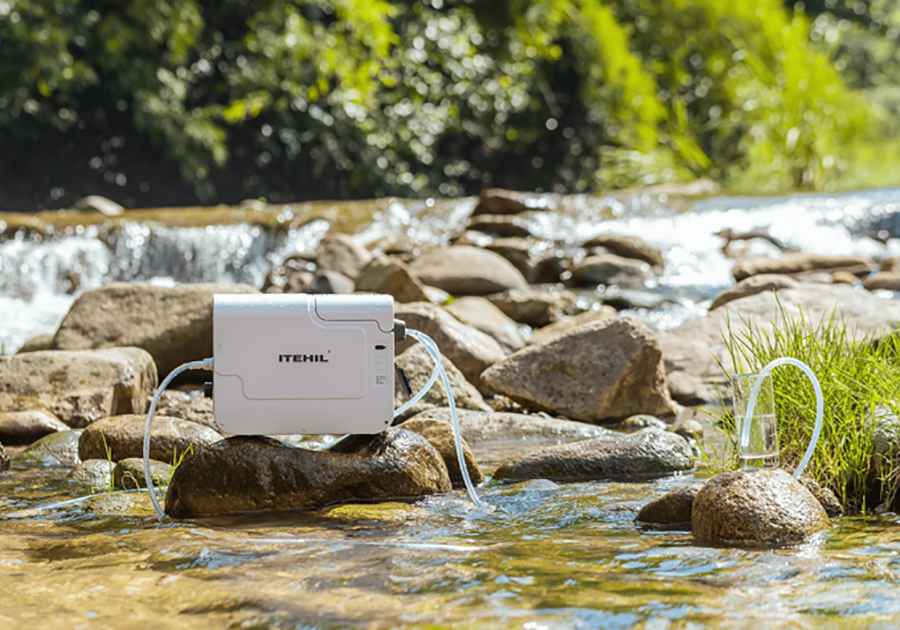Hydration Logistics: Advanced Water Purification for Remote Expeditions
In remote expeditions—from the high deserts of Central Asia to the deep jungles of the Amazon—securing a reliable source of potable water is a mission-critical task. Beyond the convenience of "RV camping," the overlander must be prepared to extract safe drinking water from high-risk sources. Understanding the science of micron ratings, UV sterilization, and chemical neutralization is the only way to ensure hydration doesn't become a medical emergency in the wilderness.

| Expedition Water Safety Specs | |
|---|---|
| Critical Rating | 0.2 microns or lower (to trap protozoa and bacteria). |
| Purification Tech | Three-stage filtration + UV-C Sterilization + Chemical backups. |
| Risk Factor | Heavy metal contamination in mining regions and viral pathogens. |
1. Assessing Raw Water Sources in Hostile Terrain
When operating far from municipal grids, your water sources are unpredictable.
- Untreated Wells & Boreholes: Frequently contain high mineral concentrations (iron, sulfur) and potential bacterial seepage.
- Surface Water (Glacial Melt/Rivers): High sediment loads can quickly clog fine filters. These sources require "pre-filtering" to protect your primary purification stage.
- Agricultural Runoff: The highest risk for chemical contaminants, pesticides, and nitrates, which standard mechanical filters cannot remove.
2. The Multi-Stage Defense Architecture
A professional expedition rig should utilize a multi-layered defense to handle diverse contaminants:
- Stage 1: Sediment Filtration (5-10 Microns): Removes sand, silt, and large organic matter. Essential for extending the life of your finer filters.
- Stage 2: Activated Carbon Block: Absorbs chlorine, pesticides, and industrial chemicals while significantly improving taste and odor.
- Stage 3: Ultra-Filtration (0.02 to 0.1 Microns): The mechanical barrier against bacteria (E. coli, Salmonella) and protozoa (Giardia, Cryptosporidium).
- Stage 4: UV-C Sterilization: Provides the final kill-step for viruses that are too small for mechanical filtration. This requires a stable 12V power supply but ensures biological safety.
3. Reverse Osmosis (RO) in Off-Grid Scenarios
Reverse Osmosis is the "gold standard" for removing heavy metals and dissolved solids (TDS). While exceptional at purification, it presents challenges for dangerous roads: it requires high pressure, consumes significant energy, and produces "waste water." For extreme expeditions, a specialized low-energy RO system is recommended only if you are traversing regions known for arsenic or lead contamination in the groundwater.
4. Understanding Micron Ratings and Flow Rates
In technical terms, the **Micron Rating** is the filter's "mesh size." For expedition safety, a "nominal" rating is not enough; look for "absolute" ratings. A 0.2-micron absolute filter is the industry standard for biological safety. However, remember that the finer the filter, the lower the flow rate. On the road, you must balance the need for speed with the necessity of safety, often utilizing high-pressure pumps to maintain a functional flow through sub-micron membranes.
5. Maintenance and Field Protocols
A water system is only as good as its last maintenance check.
- Sanitization: Periodically flush your entire tank and lines with a mild bleach solution or specialized silver-ion agents to prevent biofilm buildup.
- Filter Redundancy: Always carry at least two sets of spare cartridges. In silty environments (like the Gobi or high Andes), a filter can clog in a single afternoon.
- Testing: Carry a TDS (Total Dissolved Solids) meter and basic chemical test strips to monitor the efficiency of your RO membrane and carbon stages.
Conclusion: Hydration as a Survival Pillar
On the world's most dangerous roads, water is more than a convenience—it is a survival pillar. By moving beyond basic "RV filters" and investing in a tactical multi-stage purification system, you gain the freedom to explore the most remote corners of the planet without the threat of waterborne illness. Audit your system, understand your micron limits, and never trust a "clear" stream without verification.